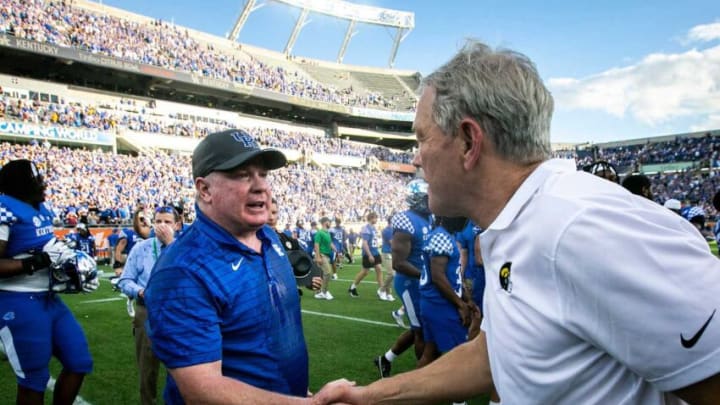The general acceptance of money paid to players for NIL deals was in part about fairness. A couple of college sports generate massive dollars for schools and coaches. Why shouldn’t players be allowed to share that largess? And if some players can earn money from college sports, it is only fair all college athletes, in every sport, should have an earning opportunity as well.
The premise behind the revolutionary change was sound. According to some coaches, the actual practice of NIL deals is neither sound nor fair.
On Tuesday, Ivan Maisel, writing for On3.com provided comments from three FBS coaches, Stanford’s David Shaw, Iowa’s Kirk Ferentz and Kentucky’s Mark Stoops.
Mark Stoops explained,
"Not to say we all don’t want more for the players. I’m not sure this is exactly what we had in mind. This is a runaway train."
From the start, early in the 20th century, the core purpose of the NCAA as an enforcement body was to level the playing field. Many followers of college football believe the NCAA has never been good at that core task and became less and less effective over time.
The prelude to today’s NIL environment was littered by missteps and inaction by the NCAA. Even if there should be changes, there will be no turning back.
David Shaw said the intent to pay athletes for their name, image and likeness was not supposed to be about recruiting.
"There’s supposed to be a quid pro quo,” Shaw said. ‘Hey, I’m signing this deal, and here’s what I am going to do, and what you’re going to pay me.’So much of the money is, ‘Hey, you want to come to school here? Here’s how much you’re going to be making. We’re going to hand it to you. You don’t have to do much for it. Right? We created an LLC. You’re going to be an employee. We’ll work out what you do later, if you do anything.’"
And the result is, as Nick Saban predicted with college sports free agency, is an environment where among athletic programs, the ‘rich get richer.’ Even among the rich, there are disparities. Is any financial deal for an athlete too much?
There has been recent speculation that University of Kentucky basketball player, Oscar Tshiebwe might make more money by playing for the Wildcats next season than he would in the NBA. That assessment is based on his first NBA season as a second-round draft pick, compared to potentially gaining a multimillion-dollar deal to stay in Lexington for another season.
The point is not what is right and wrong, fair or unfair. The point is what is sacrificed as college sports become minor league professional sports, with, in some cases, major league dollars involved.
Iowa’s Kirk Ferentz talked about the gap that already exists and is widening. Maisel summarized Ferentz’s concern as,
"the gap that Ferentz worries about, the sinkhole that will swallow any hope of the Iowas of the world winning a national championship."
Mark Stoops was direct in defining what he sees going on,
"Anybody that tells you that this is not about the money is a liar. It is now about that. The people with money, the people with boosters willing to pay money to sign players — to act like that’s not the case, you’re a flat-out liar."
The NCAA recently said it intends to look into NIL excesses. A guess is they will not begin by consulting with Mark Stoops.
